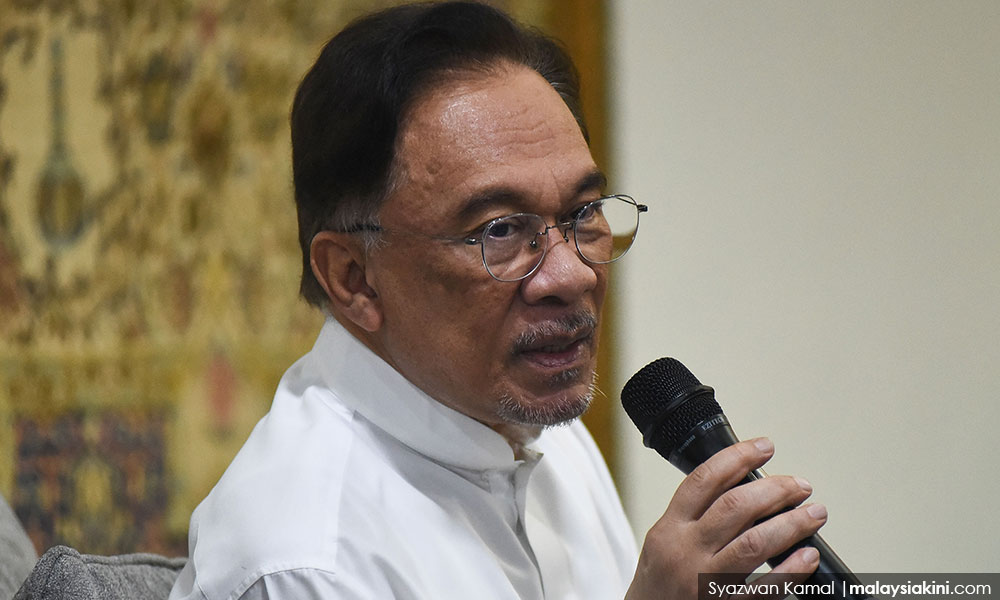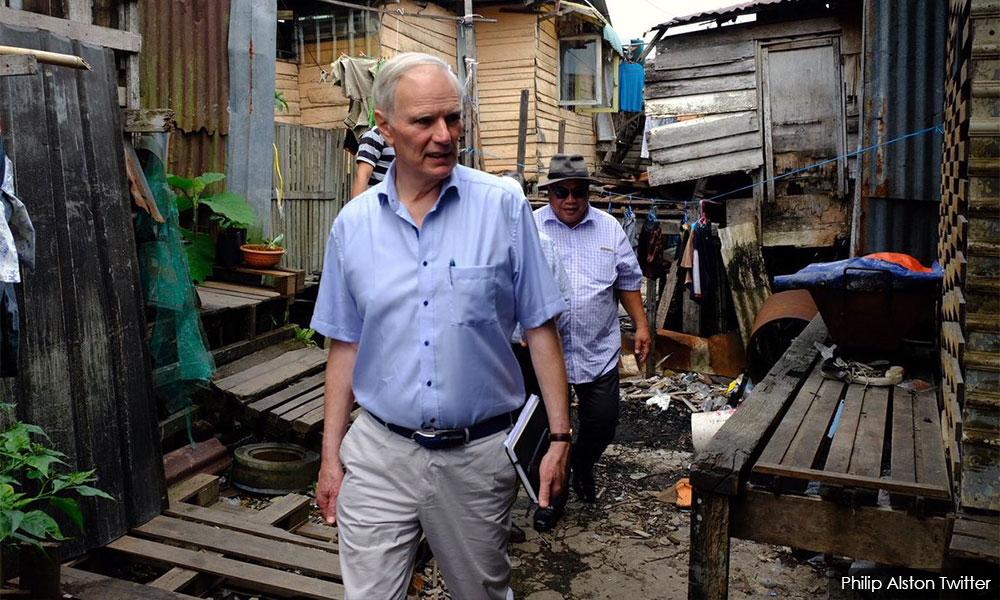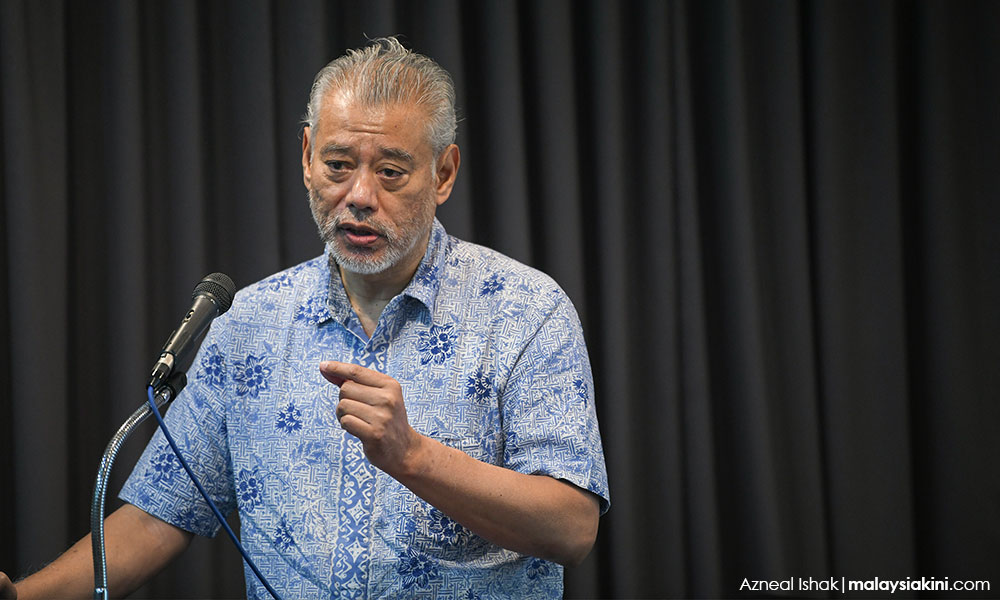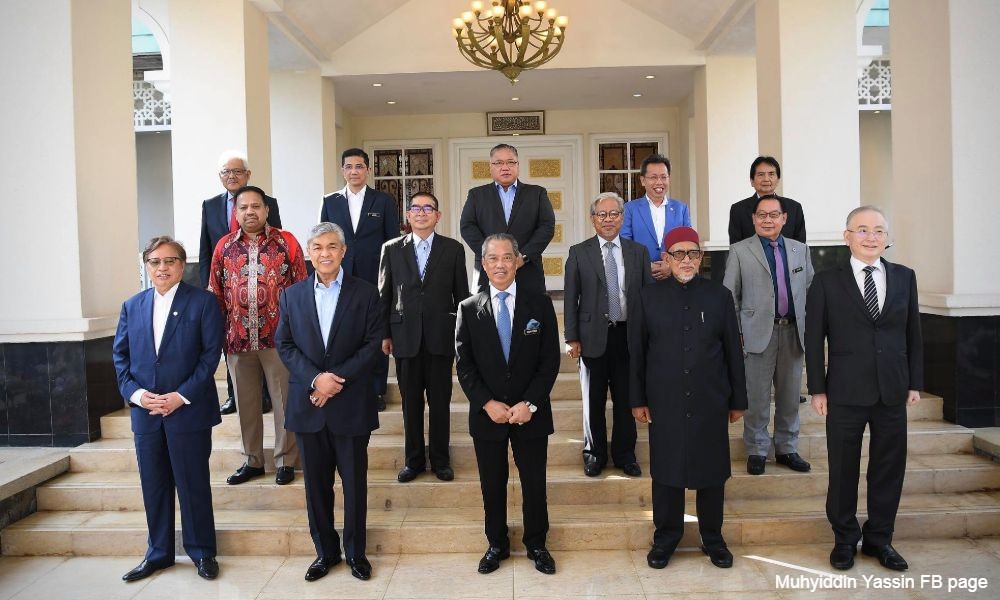
MP SPEAKS | The fundamental job of government is to take care of and protect the people.
Everything government does –building roads, schools, parks and hospitals, ensuring public safety, taking drastic measures to stop the spread of disease and infection—derives from the primary mission to remove harm from the people.
The most critical issue we face as a nation is a failure to properly account for the millions of citizens living in or near the state of poverty.
The Covid-19 pandemic has actually highlighted this fact. When the government announced the Movement Control Order (MCO)–so many of our people had little or no savings.
Daily and weekly wage earners in the B40 and M40 have scarcely any ability to survive a few weeks without work, let alone a few months.
In August 2019, the United Nations (UN) Special Rapporteur on extreme poverty and human rights, Philip Alston (below), published the findings of his visit to Malaysia.

He questioned the basic premise of the government’s claim that poverty levels in Malaysia were below one percent. He said this number is inconceivable.
Anyone who spent time around Kuala Lumpur could see many thousands of families facing dire circumstances.
What more are poor and forgotten people throughout the country, including the indigenous communities especially in Sabah and Sarawak.
It is impossible to accept that Malaysia has eradicated poverty within its borders when we consider the study by Professor Fatimah Kari of Universiti Malaya.
Struggling Indian and Malay retirees
Her 2018 publication shows that 84 pecent of Employees Provident Fund (EPF) retirees experience acute poverty –which is to say poverty in at least one of several dimensions she considered in her holistic understanding of poverty.
Fatimah’s results show that women aremore multidimensionally poor compared to men in terms of transportation, income, home ownership and education.
She also discovered that Indian retirees are more deprived than other ethnic groups, followed by Malays.
In the past, whenever the official poverty figures are challenged –the government in power will announce a revised index –such as “relative poverty index,” or “multi-dimensional poverty index.”
These new methods will engage in a statistical sleight of hand –claiming to enhance the understanding of poverty –but ultimately settling on another underestimation of the problem.
As a result, there has been a consistent failure to develop better policies that address the root causes of poverty.
For the brief time Pakatan Harapan (PH) held power –there was some effort by the government revise its methodology to achieve a real understanding of the extent of the poverty.
Through the Parliamentary Caucus on Reform and Governance, I sought to highlight this issue.

We invited economists Professor Jomo Kwame Sundaram (above), Professor Rajah Rasiah and Professor Edmund Terrence Gomez to give their views to lawmakers on how to focus the government’s efforts on addressing poverty.
Through this bi-partisan effort we compelled the government to:
1) adopt a more holistic measurement of poverty
2) implement reforms in line with addressing multidimensional aspects of poverty beyond income levels to include factors such as life expectancy, health and education
3) ensure effective implementation of these new policies and prevent leakages and abuse of power and
4) ensure development policies promote equitable growth and fair distribution of wealth and resources towards target groups. The methodology adopted by the government in assessing poverty matters.
Poverty priorities
If the government truly believes there are fewer than 25,000 poor people in the country then poverty is less of a priority and the government can allocate spending to other areas.
Instead, if we as a nation accept that there may be as many as 6-8 million people in Malaysia living at or near the poverty line, including the Malays, and bumiputras of Sabah and Sarawak, then the government’s decisions on how to allocate resources for social safety net, healthcare, education and infrastructure will be vastly different.
For a middle-income country rich in natural resources –I find it unconscionable that the level of poverty remains so high.
We must ask why, after 60 years of independence, and four decades of income redistribution policies, we have a rate which is so high.
Achieving high income status while ignoring the plight of millions would be a hollow victory for the nation.
The Perikatan Nasional (PN) administration when it came into power claimed it was necessary to replace Harapan in order to save the Malays.

PN figures argued that under Harapan the Malays would suffer, be humiliated and ultimately lose their place in the country.
What has the PN administration done since March to defend the Malays?
Bloated cabinet and GLC positions
They have assembled a bloated cabinet which will cost the country an additional RM 7.6 million per year.
They have appointed MPs who already earn a generous allowance as directors in government-linked companies.
In those positions they take jobs away from qualified professionals including Malay corporate leaders while significantly increasing their personal earnings.
When it comes to addressing the issue of good governance –PN is giving lip service to fighting corruption.
However, by partnering with the party that was in the driver’s seat when so many millions of Bumiputra shares were squandered, when so many hectares of bumiputra land were lost and when so many mega scandals took place, I question whether the interests of the Malays can really be preserved under the current arrangement.
Malaysia’s recover from the Covid-19 crisis cannot be measured in terms of gross domestic product growth alone.
Doing so would repeat mistakes of the past. The recovery must be measured holistically so that Malaysia emerges stronger, more resilient and more just.
Is the income gap between rich and poor expanding or contracting? What is the employment level of Malaysian youth? How successful are our small and medium enterprise (SME) businesses?
These are fundamental questions that must be addressed.
Ultimately this is not just a question for economists to consider. In Malaysia it is politicians who implement policy. Politicians need to have their act together.
They must appear in Parliament prepared to debate laws which will determine the course of the nation for the coming years.
In a democracy we are duty bound to conduct our affairs in a transparent manner and accept the criticism of the public.
What we see today, sadly, is politicians hiding from Parliament, making decisions behind closed doors, harassing the media and casting the nation into a period of darkness.
Today more than ever before we need leadership which unites, which inspires and which can lead the nation forward to a more prosperous and peaceful future.
ANWAR IBRAHIM is the Port Dickson MP and PKR president. - Mkini


No comments:
Post a Comment
Note: Only a member of this blog may post a comment.